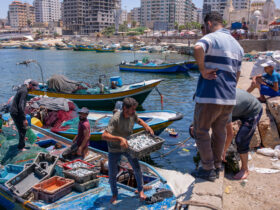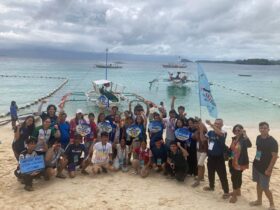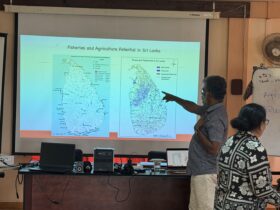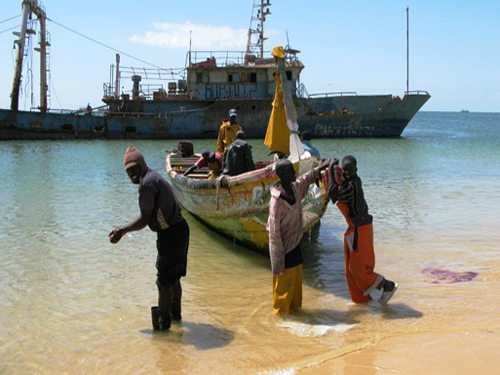Small-scale fishers worldwide will benefit significantly when international guidelines governing the sector are finally adopted.
The Voluntary Guidelines for Securing Sustainable Small-Scale Fisheries in the Context of Food Security and Poverty Eradication (The Voluntary Guidelines) was approved at an international forum in Rome in July.
According to Naseegh Jaffer, National Director of Masifundise and Co-ordinator of the WFFP, the Voluntary Guidelines secure fundamental human rights for small-scale fishers all over the world, because it was adopted by governments at the Food and Agriculture Organisation (FAO) of the United Nations (UN). It now has to be implemented in member countries.
Jaffer says an implementation and evaluation strategy will be developed in December at the next Committee on Fisheries (COFI) meeting.
Small-Scale Fisheries contribute about half, and sometimes up to two thirds of global fish catches destined for direct human consumption. Because of this, (FAO) considered it important that the sector be protected.
The idea of the Voluntary Guidelines was first mooted in Bangkok in 2008 at the Global Conference on Small-Scale Fishing. WFFP then put pressure on FAO to develop the guidelines and to involve the sector in the process.
“The Indonesian Fisherfolk Union (SNI) have participated in many regional and international forums and contributed in the formulation of the guidelines. The October, 2008 FAO event in Bangkok was historical to the formal recognition and protection of small scale fishery,” says Mohamed Reza of SNI.
“WFFP was also involved in the technical consultation process to develop the guidelines, and at each COFI meeting we had preparation workshops to develop strategies to get governments to support the guidelines. FAO also held expert workshops on the guidelines, where representatives of organisations representing fisher folk were given the opportunity to speak,” says Jaffer.
WFFP also worked closely together with the International Planning Committee (IPC), to facilitate access to FAO. IPC is a Secretariat Service to social movements in the food security field.
“The IPC set up a civil society group consisting of WFFP, WFF and other social movements to impact on the discussions relating to the voluntary guidelines.”
The Guidelines is a guide for governments, government agencies, world and regional bodies on how to deal with small scale fishing.
And, for small-scale fishing communities globally it gives hope, in that it gives recognition to small-scale fishing from an agency of the UN and its member countries.
“Through the guidelines we can begin a dialogue with national policy makers, legislators, politicians, media and social movements to negotiate and defend the rights of fisherfolk. There is a hope raised and we all can claim the adoption of the guidelines as a victory for SSF and an example of the importance of collective efforts,” says Herman Kumara, National Convener National Fisheries Solidarity Movement in Sri Lanka and WFFP co-ordinator.
The Guidelines have as its main objective to secure sustainable small scale fisheries to contribute to the struggle for food security and poverty eradication, and has been developed as a complement to the 1995 FAO Code of Conduct for Responsible Fisheries (CCRF).
The Guidelines also support the responsible governance of fisheries, and sustainable social and economic development, with special emphasis on vulnerable and marginalised people, and promoting a human rights based approach.
The Guidelines recognise that small scale fisheries represent a diverse and dynamic subsector in the fishing industry, often characterised by seasonal migration, both internal and across national boundaries. It also recognises that small scale fisheries are anchored in local communities, often with strong historical links to adjacent fishery resources, traditions and values.
Small-scale fishing communities often find themselves at odds with government agencies, especially those concerned with tourism, conservation and fisheries, because they do not have tenure rights, forcing local fisherfolk off land, on the pretence conserving nature or the fishing resource, or to make way for tourism, a big money spinner, or, just push them off the land and away from the ocean, to make way for the bigger players in the industry.
Government agencies and departments tend to make laws and adopt legislation that are often at odds with the traditional way of life of small scale fishing communities, and how they make a living. This is mostly done without consulting local fishing, indigenous and marginalised communities.
Jaffer says positives for small scale fishing communities in the voluntary guidelines are that it mainstreams women and other marginalised communities like indigenous people, the disabled and the aged.
“It gives protection to the livelihoods of small scale fishing communities in legislation, and it can’t be taken away, and it brings opportunities for social development and advancement”, says Jaffer.
Jaffer also emphasise that small scale fishers are now guaranteed better labour and working conditions, child care rights, and other rights like the right to housing and the right to tenure.
Jorge Varela, Executive Director of the Asociacion De Pescadores Artesanales Del Golfo De Fonseca (Apagolf) in Honduras and co-ordinator of WFFP, is sceptical about his government’s intentions. “They are more interested to implement neoliberal policies than social and environmental laws. The guidelines are socio-environmental, “he says.
In the Caribbean countries, however, governments have agreed to develop supporting legislation. In South Africa a small-scale fisheries policy has been adopted that is similar to the Voluntary Guidelines.
“Since South Africa has already developed its own SSF Policy, we should look at encouraging SADC to also look at developing regional legislation for the implementation of the Guidelines,” says Jaffer.
Jaffer believes that there is only one drawback to the guidelines and that is that it is voluntary, and that he would have liked it to be compulsory on all governments to implement.






Leave a Reply